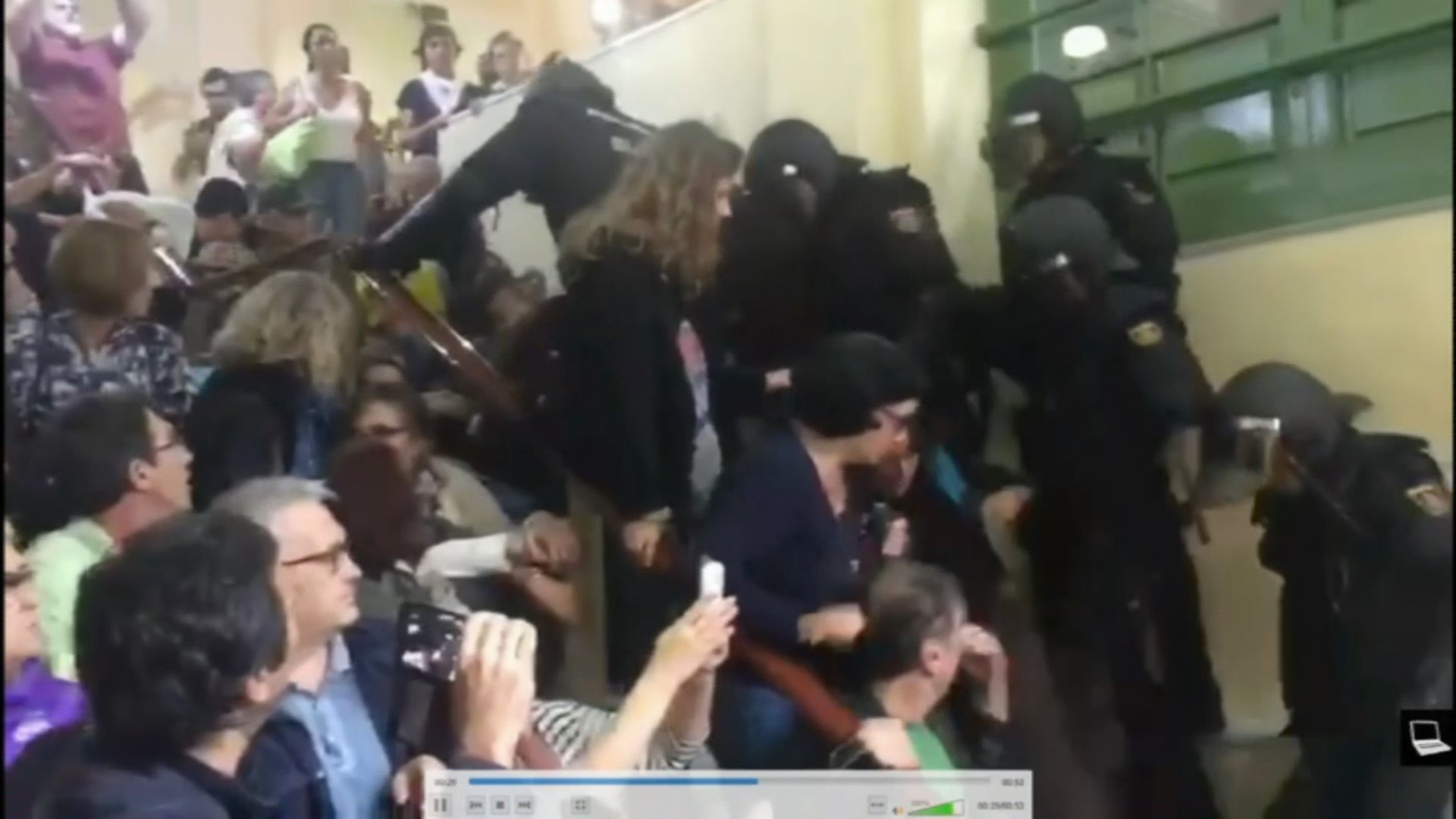One of the Spanish National Police commanders who took part in the controversial police action at the Pau Claris secondary school on October 1st, 2017, with the codename Lobo 20 ("Wolf 20" in English), has acknowledged that he had the responsibility for designing the police action and to ensure that it was carried out "correctly". He testified today in Barcelona as a defendant. The other of the two group leaders who was scheduled to testify this Monday in the 7th investigative court, Gamo 40 ("Deer 40"), will do so before the end of the month.
The Barcelona Audience court agreed to a summons as suspects of the two National Police commanders who directed the police operation at the Institut Pau Claris in central Barcelona on October 1st, 2017, which the court had rejected. The court admitted that there were police excesses in the actions.
Lobo 20, who acted in the police actions to disrupt the referendum at Mediterrània primary school as well as at Pau Claris, was neither on the stairs - where severe incidents took place - nor in the courtyard, but in an intermediate position. Sònia Olivella, litigation coordinator for the Irídia human rights group, reported that the officer had "defined that his responsibilities were to design the action to be carried out and the deployment of his group, of all the officers who were under him, thus he did not give specific orders to the police officers, but did control that the action was carried out correctly". The commander added that "he did not observe any disproportionate action," Olivella added, as she left the court.
The other group leader, still to testify, and expected to do so before the end of the month, is the one who was on the Pau Claris staircase itself.
Officers testify
This Monday, testimonies were given by seven police officers under investigation for the police actions on October 1st, 2017 in Barcelona, in connection with the operations at five schools being used as polling stations that day: Mare Nostrum (3 officers), Dolors Monserdà (1), Pau Claris (2), Mediterrània (1) and Infant Jesus (1). Olivella explained that most of the agents, in line with their rights, only answered the questions from the judge, their defence lawyers and the public prosecutors, but did not answer questions from the private prosecutions.
The court interlocutory alleges that these officers were responsible for police actions that were "absolutely disproportionate." The text says that they acted with "decision-making and functional autonomy" and that the leaders of the group "did not prove that they had given general instructions to charge forcefully or use more force than the minimum necessary to perform their function."
The interlocutory describes the actions in these words: "Slapping people, throwing people down the stairs, grabbing women by their hair and dragging them, throwing people's bags and personal belongings into the street, and one of them, even trampling on people."

